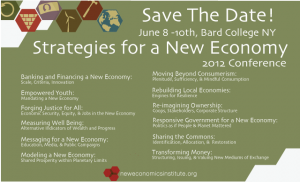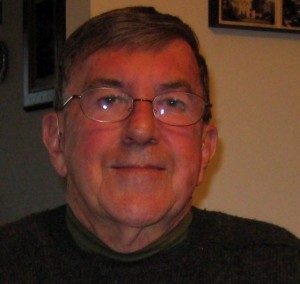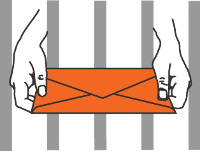
Upcoming Event:

Upcoming Event:

The below link goes to Matt Ridley's excellent lecture analyzing the importance of heresy in science; and by extension, the danger to science posed by an Authority that dictates what is acceptable and what is unacceptable. The oppression of authority is a subject Galileo learned to his chagrin, and a central theme of Jacob Bronoski's brilliant Ascent of Man, in my opinion, the finest television series ever produced. (Bronoski's subject was the growth of knowledge and its central role in the cultural evolution of mankind. To appreciate the squandered potential of television and the mass media, one need only to watch Bronoski's series of programs.)
Ridley gave the Angus Millar Lecture of the Royal Society of the Arts in Edinburgh a few days ago 31 October 2011. Ridley is trained in evolutionary biology — he has a PhD in Zoology from Oxford. His libertarian philosophy makes him controversial in some quarters, but he one of the best science writers out there, particularly on the subject of evolution. Like Darwin, he thinks and writes from the point view of the bottom-up empiricist (which is my favorite point of view).
Ridley's specific subject is pseudo-science: its temptations, its fallacies, and its dangers: his case study is the theory of anthropogenic global warming–a theme about which he says: “When a study was published recently saying that 98% of scientists ‘believe’ in global warming, I looked at the questions they had been asked and realized I was in the 98%, too, by that definition, though I never use the word ‘believe’ about myself.”
Chuck Spinney
Alexandria, Virginia
Below the Line: PDF Link and Also Full Text Online
Continue reading “Chuck Spinney: Matt Ridley on Why Heresy is Important”
Global Terrorism Research Project
Haverford College
Welcome to the Global Terrorism Research Project, a product of the Political Science department at Haverford College. Professor Barak Mendelsohn oversees the project supported by a team of student researchers. The site consists of two sections, resources and the al-Qaeda Statements Index. The resources section of our website contains a compilation of links to various other useful websites that provide information on terrorism and international security. This portion of the website contains links to books, primary sources, data sources, journal indexes, news, blogs, research sites, research portals and resources for students. The al-Qaeda Statements Index is a long term project that consists of a comprehensive collection of statements released by al-Qaeda since 1994. This section also includes biographical information on authors affiliated with al-Qaeda who have a significant number of statements indexed.

IARPA clutches at straws….
Matthew Barakat, AP
Fosters.com, October 24, 2011
FAIRFAX, Virginia (AP) — Maybe you've got a hunch Kim Jong Il's regime in North Korea has seen its final days, or that the Ebola virus will re-emerge somewhere in the world in the next year.
Your educated guess may be just as good as an expert's opinion. Statistics have long shown that large crowds of average people frequently make better predictions about unknown events, when their disparate guesses are averaged out, than any individual scholar — a phenomenon known as the wisdom of crowds.
Now the U.S. intelligence community, with the help of university researchers and regular folks around the country, is studying ways to harness and improve the wisdom of crowds. The research could one day arm policymakers with information gathered by some of the same methods that power Wikipedia and social media.
Phi Beta Iota: The idea is actually from George Mason University. IARPA is a mess, as is DARPA. If the DNI were serious about growing up, he would have distributed national intelligence councils for each of the ten high-level threats to humanity, each of the core policy domains, and state and local sub-councils, as well as a means of integrating humans, data, and assumptions in an EarthGame such as Medard Gabel is ready to build at a cost of no more than $3 million a year. US Intelligence lacks intelligence and integrity, and is not going to grow up under its current “leadership.”

Between the Bars is a weblog platform for prisoners, through which the 1% of Americans who are in prison can tell their stories. Leave a comment – we'll pass it on.
In part with the help of MIT Civic Media.
 (Invitation only)
(Invitation only)
AGENDA
Supposedly it will be livestreamed from the conference website.

Announcing a new Rheingold U course: Toward a New Literacy of Cooperation
For the past ten years, I've worked with Institute for the Future to track the emergence of a new story about how humans get things done together. The old story of survival of the fittest, competition, rational self-interest is changing as new knowledge comes to light about cooperative arrangements and complex interdependencies in cells, ecosystems, economies, and humans. In 2005, I delivered a TED talk about this subject; the video has been viewed more than 182,000 times. In the same year, I co-taught a seminar at Stanford with Andrea Saveri of Institute for the Future, “Toward a Literacy of Cooperation.” This six week Rheingold U course builds on the texts, videos, and other materials developed over the past ten years. Under my direction, co-learners will inquire, collaborate, discuss, co-construct knowledge about the building blocks and conceptual frames of a new literacy of cooperation. The course will run September 30 – November 11